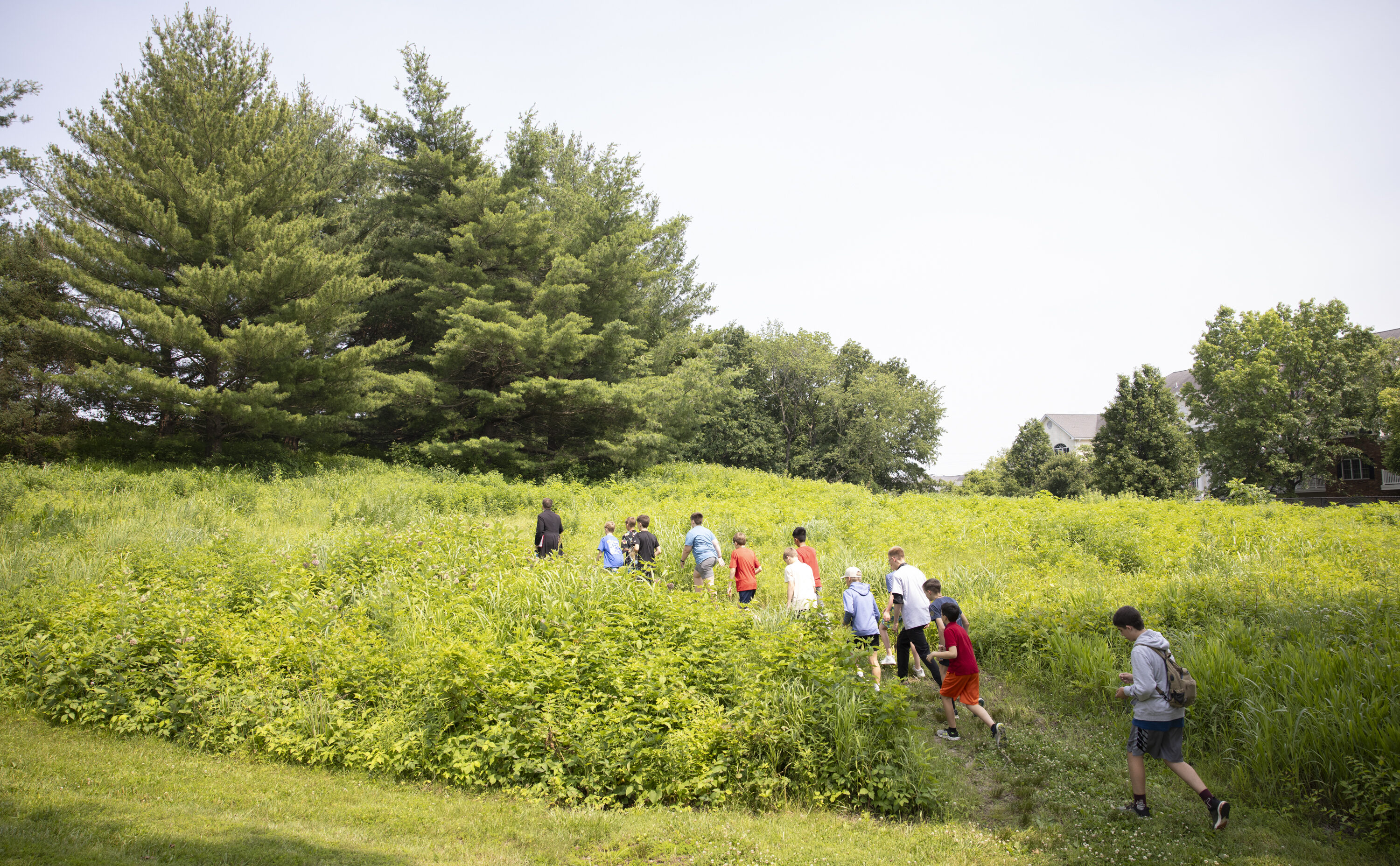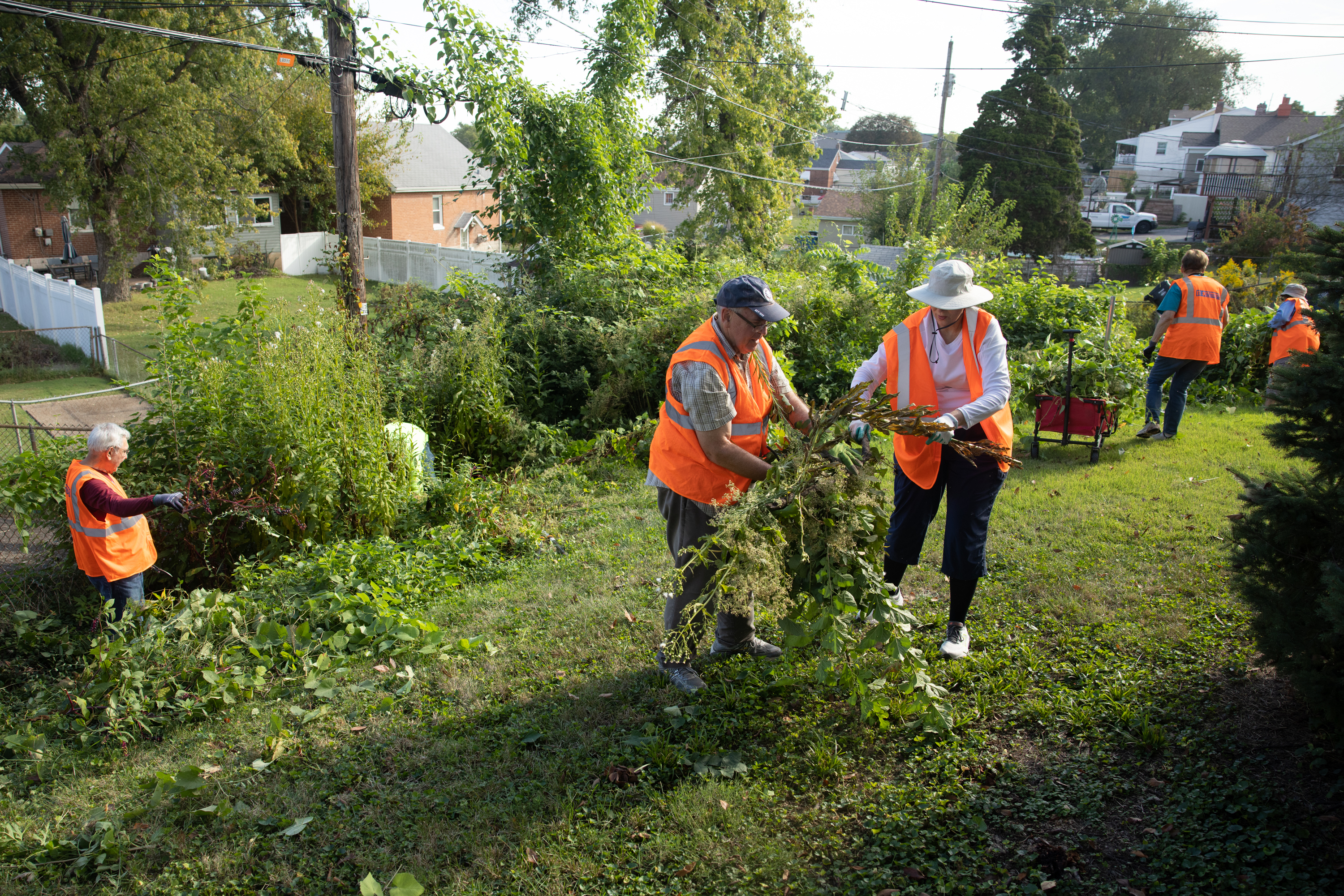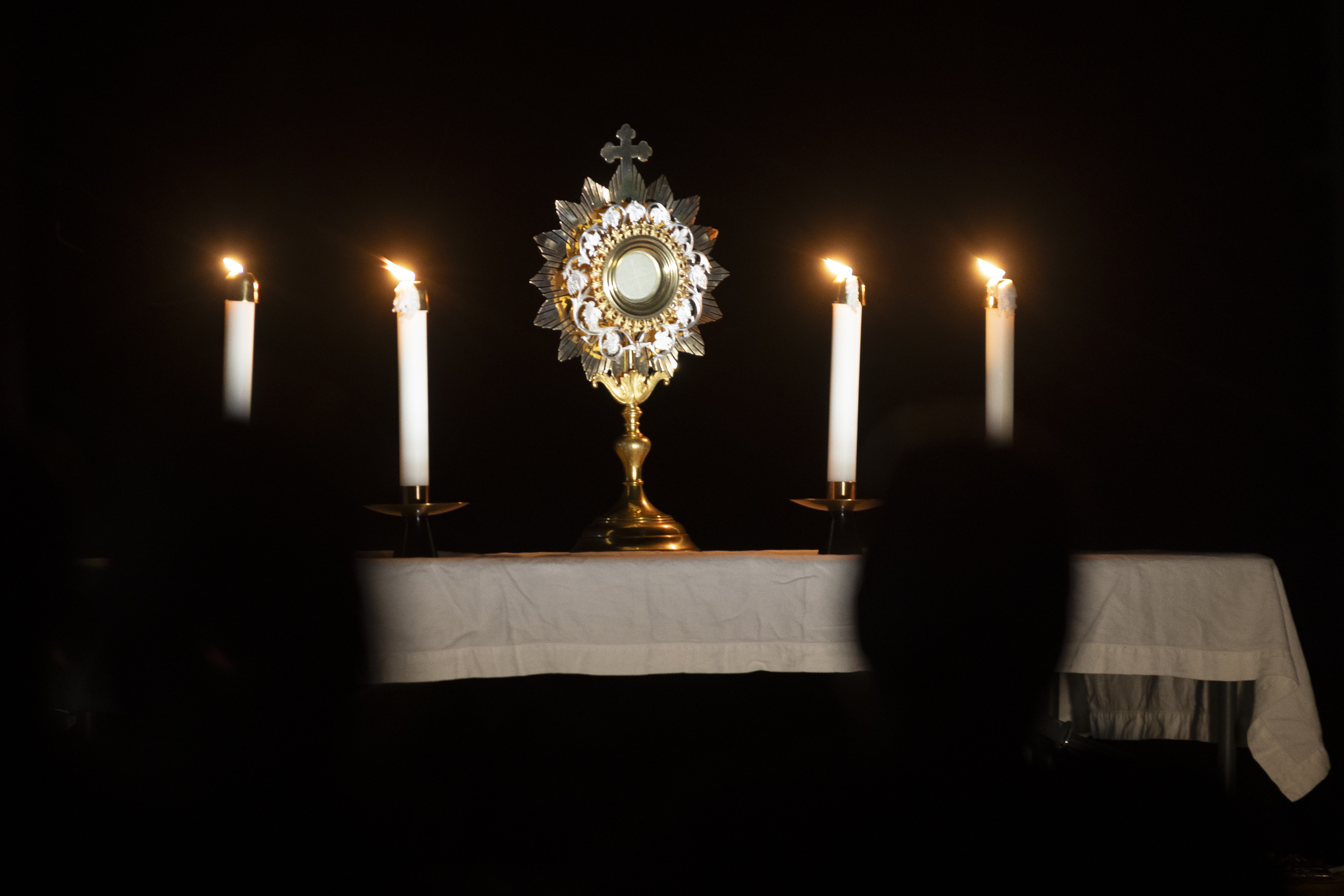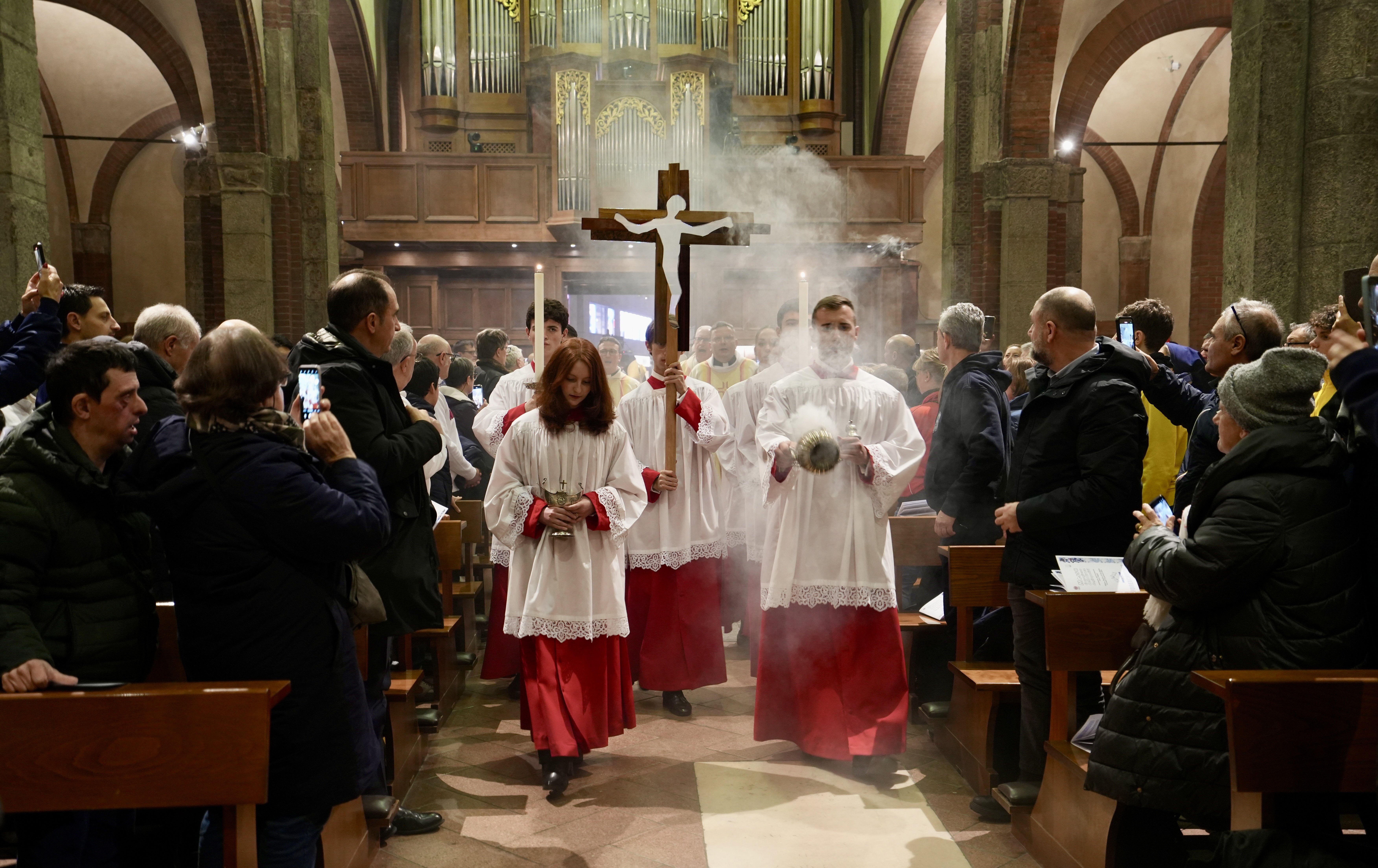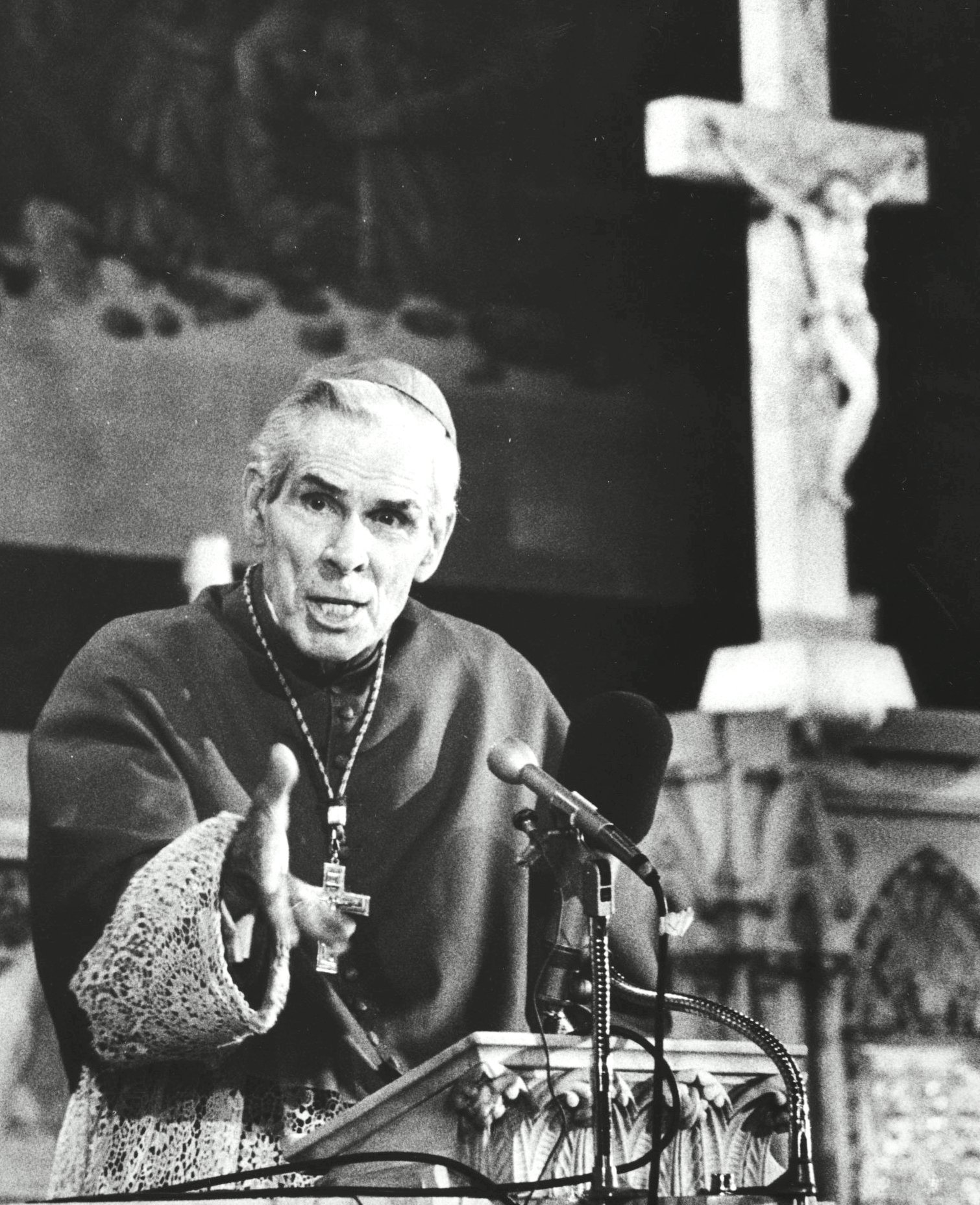United in love, young people can bring about change
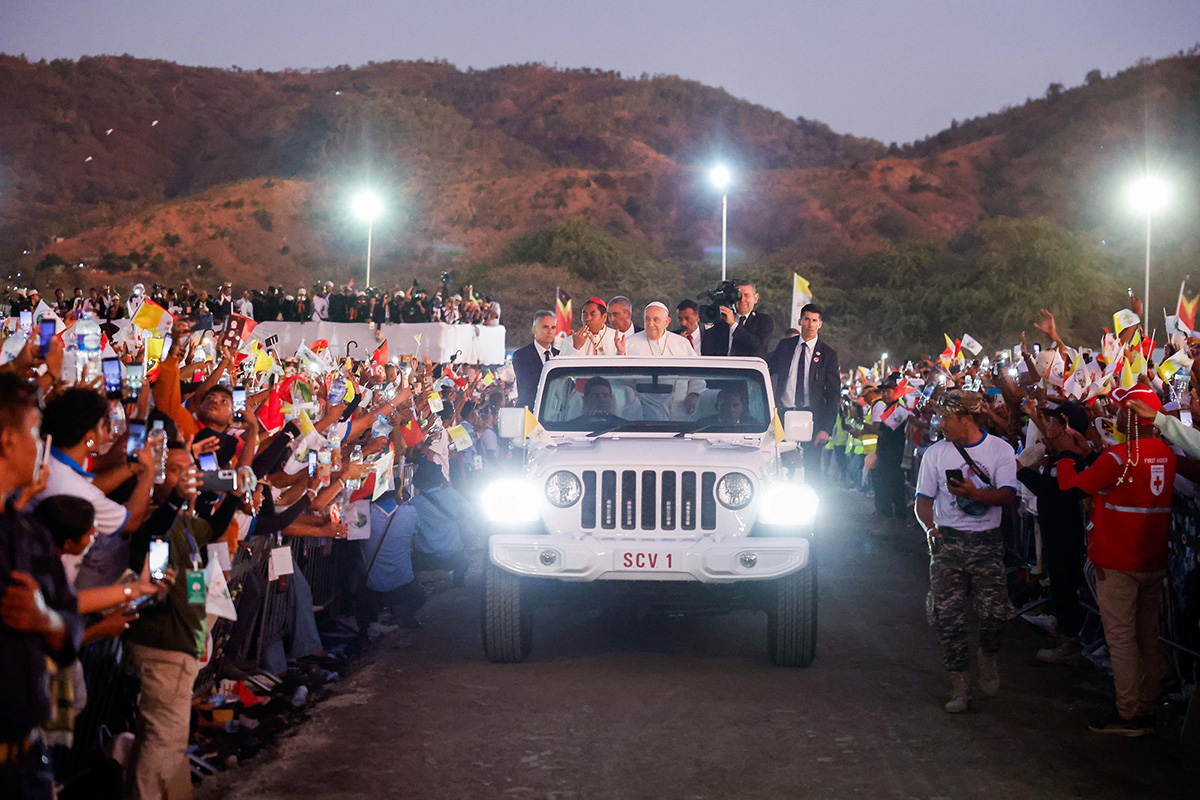
Pope Francis visited Indonesia, Papua New Guinea, Timor-Leste and Singapore Sept. 2-13
PORT MORESBY, Papua New Guinea — In Papua New Guinea, the term “wantok” means people who share a language and culture, and that is what Christians should be, Pope Francis said, but only in the sense of sharing the language and culture of love.
Before leaving Papua New Guinea Sept. 9, the pope returned to Sir John Guise Stadium in Port Moresby, where he had celebrated Mass the day before. His second visit was to spend time with an estimated 10,000 young people and to hear their concerns.
About 60% of Papua New Guinea’s population is under the age of 25.
Ryan Vulum spoke to the pope and to his peers about the harm done to children when parents, including his, separate when the children are still young. And Bernadette Turmoni spoke of an even more serious issue, violence and abuse within families.
“We hear about it daily in the news and crime reports,” she told the pope. “Abuse destroys the lives of young men and women. Those who have suffered from it feel unloved and disrespected. They lose hope and may commit suicide or leave their families.”
Bishop John Bosco Auram of Kimbe, the bishops’ conference delegate for youth, told Pope Francis, “Our young people face deep-seated challenges such as living Christian values within the family and society, limited opportunities for growth and development, the strong influence of modern life, various frustrations stemming from unfulfilled expectations of society, government and even the Church.”
But, he said, the greatest challenge is for them “to discover Christ within and amidst these realities and situations,” and so the pope’s visit is a celebration of hope.
People must “learn a common language, the language of love,” Pope Francis said, because the words people use can divide them or even become weapons that destroy families.
“Break down divisions, do not close yourselves within your own group,” he said. Instead, “go out to meet others and form friendships and then dream together, walk together, build together.”
“Dear young people,” he told them, “it is my hope that you learn the language of love and thus transform your country, because love brings about change, makes you grow and opens paths to the future.”
Everyone fails at something sometime, the pope said. “What is important is to get back up” and to help others get back up when they fall.
In an afternoon devoted to the Catholic Church in Papua New Guinea Sept. 7, the pope visited with some of the most vulnerable members of society, the Catholics who care for them, and with the country’s bishops, priests, religious, seminarians and catechists.
He started at the Caritas Technical Secondary School in Port Moresby, meeting some 800 students as well as children who were living on the streets and children and adults with disabilities who are assisted by the Callan Services network.
A young girl said that just having the meeting showed how much the pope loves the street children, “even though we are not productive, sometimes we are troublemakers, we roam around the streets and become (a) burden for others.”
“I would like to ask you Holy Father, why we do not have opportunities like other kids do and how we can make ourselves useful to make our world more beautiful and happy even if we live in abandonment and poverty?” she asked.
Calling the children’s questions “challenging,” the pope responded that every person is unique, and each has talents and difficulties, but God has a mission for each person based on loving others and knowing how to accept love.
“To give love, always, and to welcome with open arms the love we receive from the people we care about: This is the most beautiful and most important thing in our life, in any condition and for any person — even for the pope,” he told the children.
“None of us are a ‘burden,’ as you said,” the pope responded. “We are all beautiful gifts from God, a treasure for one another!”
Be reflections of God’s love, pope says in Timor-Leste
By Cindy Wooden | Catholic News Service
TASITOLU, Timor-Leste — While it is tempting to want more money and more power, God works great things through those who know how to make themselves small, Pope Francis told a massive crowd in one of the world’s poorest countries.
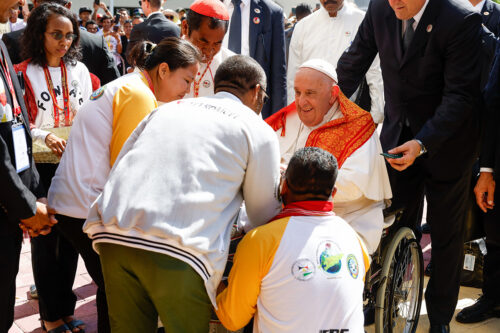
In a nation of 1.3 million people — 96% of whom are Catholic — local authorities estimated 600,000 people gathered for Mass with the pope Sept. 10 at a park in Tasitolu, which is about five miles outside Timor-Leste’s capital, Dili. They came from all over Timor-Leste but also from Indonesia.
Before the Mass, Prime Minister Xanana Gusmão introduced Pope Francis to a long line of people who are sick or have disabilities. The pope blessed each one as the prime minister helped them up and/or hurried them along.
The prayers and readings were from the votive Mass for the queenship of Mary, “the mother of a king, Jesus, who chose to be born small and to make Himself our brother, entrusting his powerful action to the ‘yes’ of a poor and innocent young mother,” the pope said.
He asked the crowd to think about how the birth of a child is a moment of joy and how “an infant’s vulnerability carries with it a message so strong that it touches even the most hardened souls.”
Praising the people of Timor-Leste for continuing to have a relatively high birth rate, Pope Francis said it was “a great gift that so many children and young people are present, constantly renewing the freshness, energy, joy and enthusiasm of your people.”
With about 65% of the population being under the age of 30, Timor-Leste is “a young country and we can see every corner of your land teeming with life,” he said.
If every baby brings joy, the pope said, how much more should people marvel at the fact that in Christ, God Himself became human “to draw close to us and save us.”
The response to that gift, he said, should be to open oneself to God “so that He may heal our wounds, reconcile our differences and reorder our lives to create a new foundation for every aspect of our personal and communal life.”
“Let us not be afraid to make ourselves small before God, and before each other, to lose our lives, to give up our time, to revise our schedules, giving up something to help a brother or sister become better and happier,” the pope told them.

